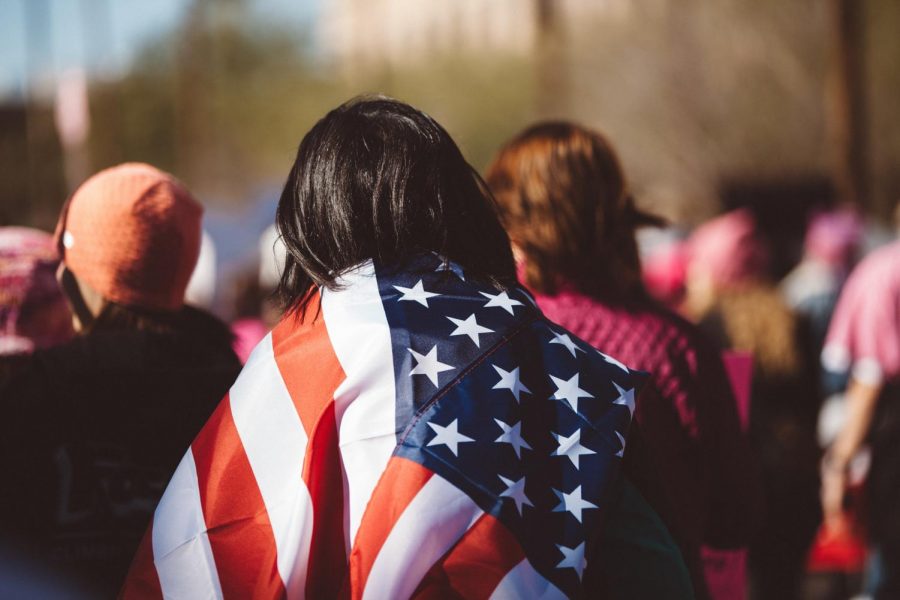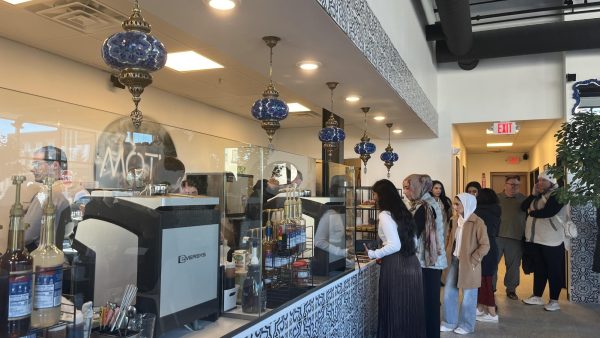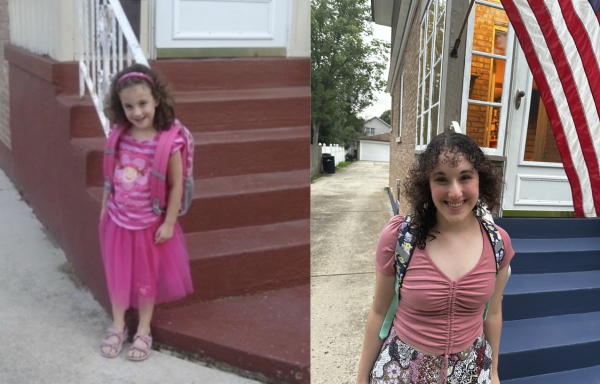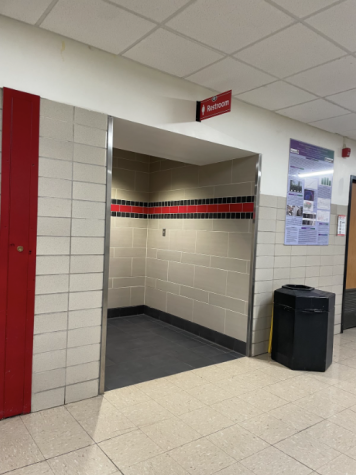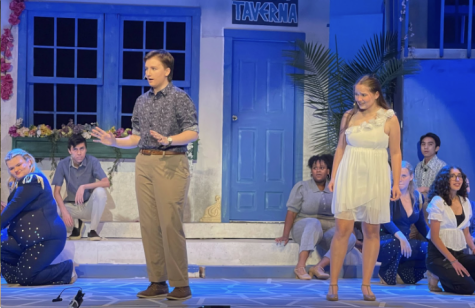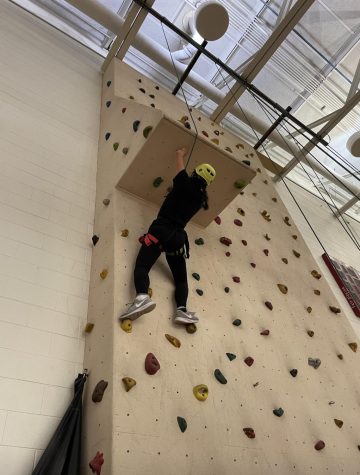How do we process national tragedies?
The day of January 6th was supposed to be a routine day. Congress was going to certify the election on a day every four years that no one remembers, but instead, everyone across America was glued to the TV watching a gruesome act unfold.
Congresspeople hid in the Capitol building while terrorists ransacked their desks. Police and others endured injuries while trying to protect the heart of our country. But others let the terror in. Some police stood by or even directed the rioters into the building. Eventually, the riots calmed down and Congress was back to certifying the election late into the night.
This was the first time I had seen an act of terrorism in our country unfold. I was horrified for the safety of DC and especially the men and women of congress. I was also angry at our country’s response. During the days after, I kept thinking about my generation experiencing this at such an impressionable age. We seem to be drowning in endless news cycles about school shootings, hate crimes, and police brutality.
But we were not the only generation to experience national trauma. The Millennials were in school on 9/11. On that day, confusion and fear consumed their thoughts.
Glenbard East had a late arrival on September 11th so the students didn’t come in until 10 am. Because of this late start, many students found out as they woke up that something horrible had happened in New York City.
Carrie Khoury was a sophomore at Glenbard East in 2001. She got out of the shower dripping wet as she witnessed the first plane hit the North Tower.
“I jumped out of the shower and stood dripping at the top of the stairs as I watched the replay of the first plane hitting a tower. At first, I thought maybe it was some terrible accident, but I was watching live as the second plane hit and realized it was no accident,” Khoury said.
Everyone was left in shock as they witnessed the deaths of so many innocent people. They weren’t sure if it was an accident until the second plane hit.
“Getting ready for school felt strangely inappropriate after watching so many people die. I couldn’t stop thinking about how many lives were snuffed out while I watched from my own living room,” said Khoury.
When students got to school, some knew what was happening, but others did not. It was different twenty years ago since people were not glued to their phones getting updates from news apps every 10 minutes.
Tim Fawkes is a music teacher at East. He taught at another school in 2001 but his experience was similar to most teachers.
“The day of the attack was very confusing. It was hard to know what was happening. Don’t forget that this was before everyone was walking around with the internet in their pocket! Most of my students knew that the attack had happened but was not immediately in a place to process it because of the widespread shock and confusion,” said Fawkes
This also left confusion about our country. Many students didn’t understand why they were getting attacked. They were raised in a time where things like racism and terrorism weren’t a large part of the mainstream conversation. America was the beacon of power, freedom, and safety.
“It just wasn’t in the realm of possible things that something like that could happen. You have to remember that I was just a little too old to remember the Berlin Wall falling, so literally, at that point, I didn’t know a time when America wasn’t the unquestioned hegemonic superpower. We were all raised in the Clinton era, where people thought we had solved racism with the civil rights movement of the ‘60s, ” said Brett Schweinberg class of 2004.
Stacey Winborn who also graduated in 2004 agreed that it was shocking because, until that point, their lives had felt very safe.
“Nothing like that had ever happened in my life up to that point. My mom always told me our military would never allow anything like that to happen,” said Winborn.
During and after the attacks some teachers addressed it, but some did not. I had a similar experience after January 6th.
The school board has a policy on addressing controversial issues which was adopted in 1997. During a presentation or discussion, speakers must consider age, complement the class curriculum, inform the truth, and regard all beliefs of different students.
For some teachers, discussing real-world events fits into the flow of their class content like English and History while teachers of other subjects like PE and Math may not be able to connect it to their curriculum.
Justin Mayo is a history and government teacher at Glenbard East. So 9/11 was an unavoidable topic in his class.
“I don’t really remember NOT talking about it. In fact, I know that my classes did discuss it to a certain extent, though I don’t believe those conversations happened right away because we didn’t have enough information. The conversations seemed to happen two or three days later after people had a chance to learn about what happened,” said Mayo.
On January 6th, there was no set rule on whether to address the attacks, letting teachers decide on their own. Antoine Anderson, the principal of Glenbard East said that there was not a specific policy for addressing the incident, but resources on how to have discussions if they chose were provided to teachers.
“Teachers were trusted to use their best judgment in determining how much time if any should be dedicated to the discussion if it wasn’t related to their curriculum,” said Anderson.
Anderson states that Glenbard East’s mission is to be an equitable school, along with providing a safe environment to learn for all students.
“We did not do anything, in particular, to make students feel safe after the incident as this is our mission on a daily basis. Ultimately, we want to build and foster a connected community. A welcoming, inclusive, and equitable community for everyone regardless of personal beliefs,” said Anderson.
It is easy for our generation to write off our predecessor’s trauma of witnessing 9/11. Our generation has had many traumatic experiences like school shootings and hate crimes. But in light of January 6th, we can relate to our millennial counterparts and now hopefully work together to focus on the good in America and be a successful generation.
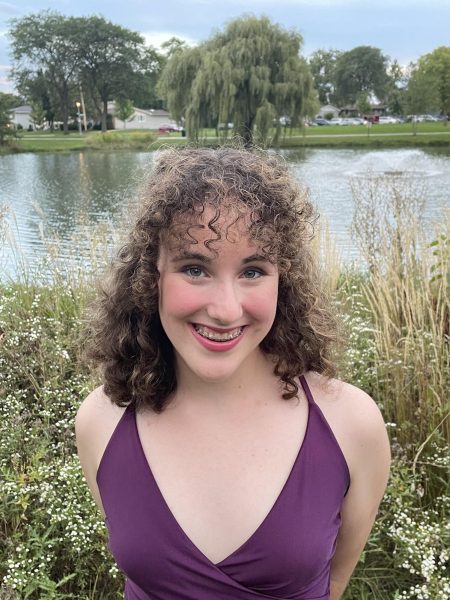
Maggie is a senior, this is her fourth year with the Echo, and is returning as Editor-in-Chief! In addition to the Echo, Maggie plays violin, is orchestra...



